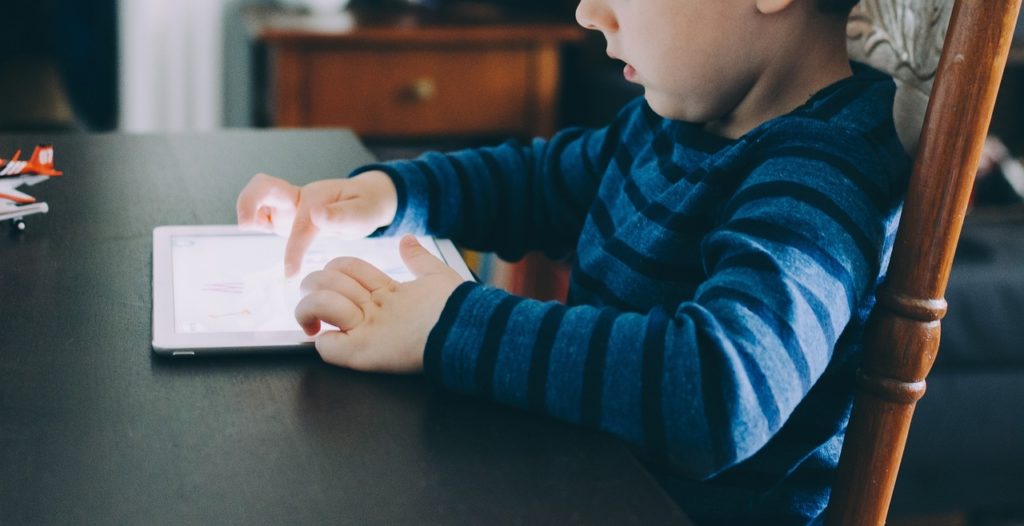How to Reduce Your Child’s Screen Time

Parents know the benefits of technology and the importance of monitoring and limiting children’s screen time to promote their overall wellness.
In this article, we will explore how much screen time is too much for kids, the effects of screen time on children, and practical steps to reduce screen time with Life360’s tools.
How Much Screen Time Is Too Much for Kids?
According to the American Academy of Pediatrics, children aged six and older should not exceed screen time over two hours daily.
Adhering to this recommendation can be challenging with the increasing digitalization of classrooms and recreational activities. To effectively manage your child’s exposure to educational and recreational digital content, Life360 can help you remember that not all screen time is equal, and the content matters as much as the quantity.
Register online to learn more.
The Effects of Screen Time on Children
How much screen time is too much? Your kids get grumpy when you turn off the TV or tablets. Maybe even their grades are suffering. At such moments, screens become evident that they may be causing more problems than we initially realized.
Children spending too much time with their screens can struggle with many issues. We’re talking about things like having a tough time falling asleep because their minds are still buzzing from that video game, or maybe they’re missing out on playground fun and the chance to make new friends. Not to mention that too much sitting around can contribute to a less-than-healthy lifestyle.
And it’s not just us parents noticing these things; it’s backed by science too. The American Psychological Association shares our concern and points out that too much screen time might affect our kiddos’ school performance. So, as parents, we’re left with quite the task. We’ve got to figure out how to navigate this digital world, setting boundaries and rules to keep screen time in check.
5 Ways to Reduce Screen Time for Children
Here are five effective strategies that, when paired with Life360’s features, can significantly help in managing and reducing your child’s screen time:
- Set Screen Time Limits: Using an app or device, you can establish clear daily or weekly limits on your child’s device usage. You and also set limits with your child that are enforced by taking their phones or tablets away after certain periods of time. This promotes healthy habits and prevents digital dependency.
- Encourage Outdoor Activities: Outdoor activities are an excellent alternative to screens. Using Life360’s location sharing and place alerts features, you can ensure your child’s safety while encouraging them to explore and play outdoors.
- Create Tech-Free Zones: Designate areas where screens are off-limits, such as the dining room or bedrooms. This encourages family interaction and quality time spent together without digital distractions.
- Limit Screen Time Before Bed: To promote better sleep habits, keep devices out of bedrooms and restrict screen usage for at least one hour before bedtime.
- Use Screen Time as a Reward: Make screen time a privilege, not a given. Children can learn the value of hard work and responsibility by tying screen time to completing homework or chores.
By implementing these strategies, you’re reducing screen time and promoting healthier behaviors and lifestyle habits.
Life360: Your Trusted Partner in Managing Screen Time
Think of Life360 not just as an app but as your steadfast ally on this wild journey we call parenting in the digital age. We’ve packed it with nifty tools designed to help you keep a handle on your child’s screen time. We’ve got your back with features like super-secure messaging, the ability to share locations, get alerts about particular places, and even our cool collaboration with Tile trackers. Life360 is here, armed and ready, to lend you a helping hand in managing screen time for your kids.
In addition to these features, Life360 encourages open communication about digital usage, fostering a healthier relationship between your children and their devices. We aim to transform screen time from a point of contention into a controlled, productive, and beneficial activity.
Embrace the power of Life360 in effectively managing your child’s screen time, promoting a safer, more digitally-balanced world. Join Life360 today and step into the future of responsible digital parenting.



